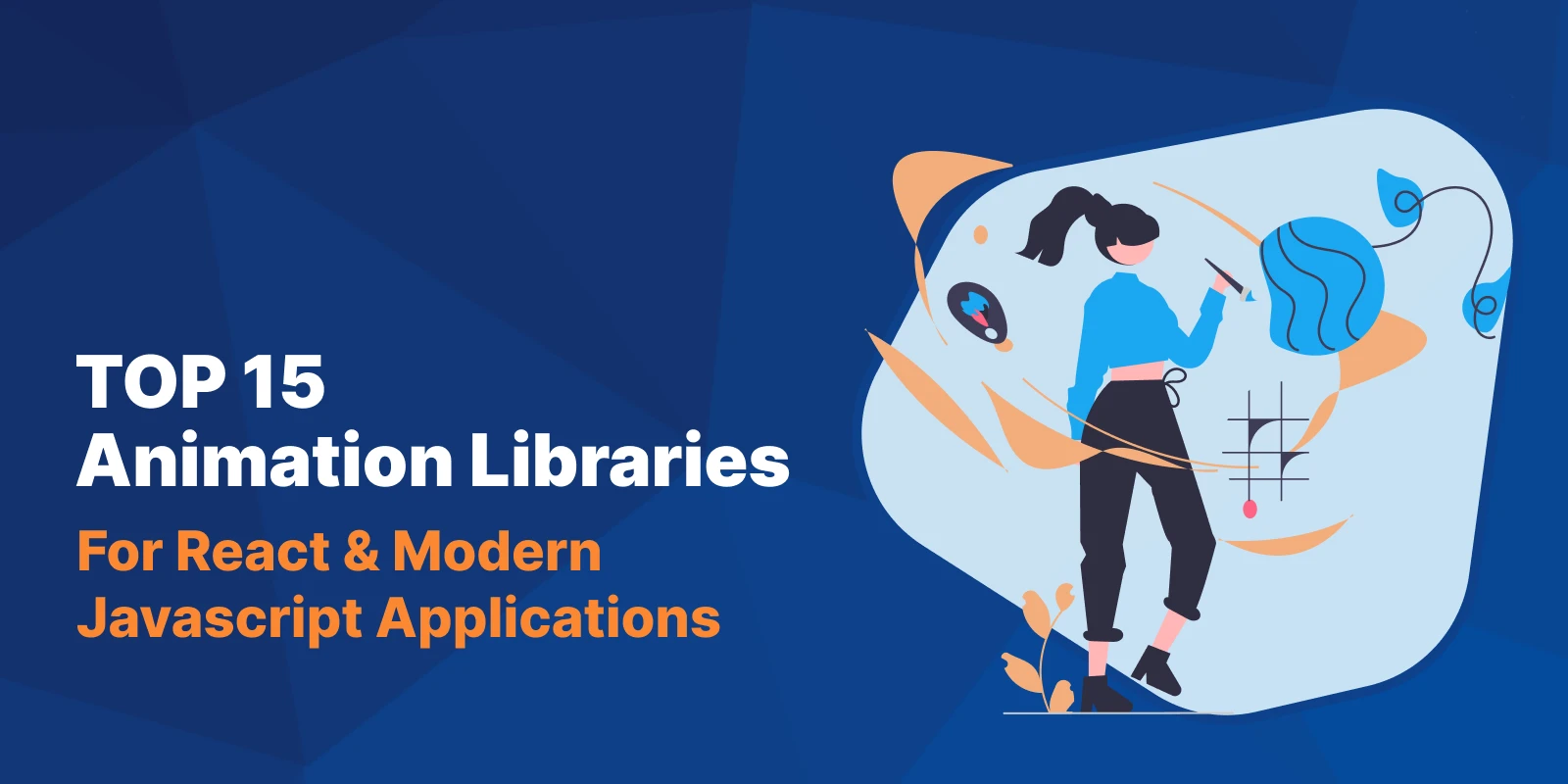Animations can take your web applications from good to great by making them more engaging and interactive. They provide visual feedback, guide users through the interface, and add a touch of personality to your projects.
There are a lot of animation libraries from simple, CSS-based libraries to powerful JavaScript libraries capable of creating complex animations. In this article, we’re diving into the top 15 animation libraries for React and modern web apps.
From the well-known React Spring and Framer Motion to specialized libraries like Vivus and Three.js, you’ll find something here to make your web projects shine. Let’s explore these libraries and see how they can transform your website user experience!
Animation Libraries for General Use cases
1. Animate.css - CSS Animation
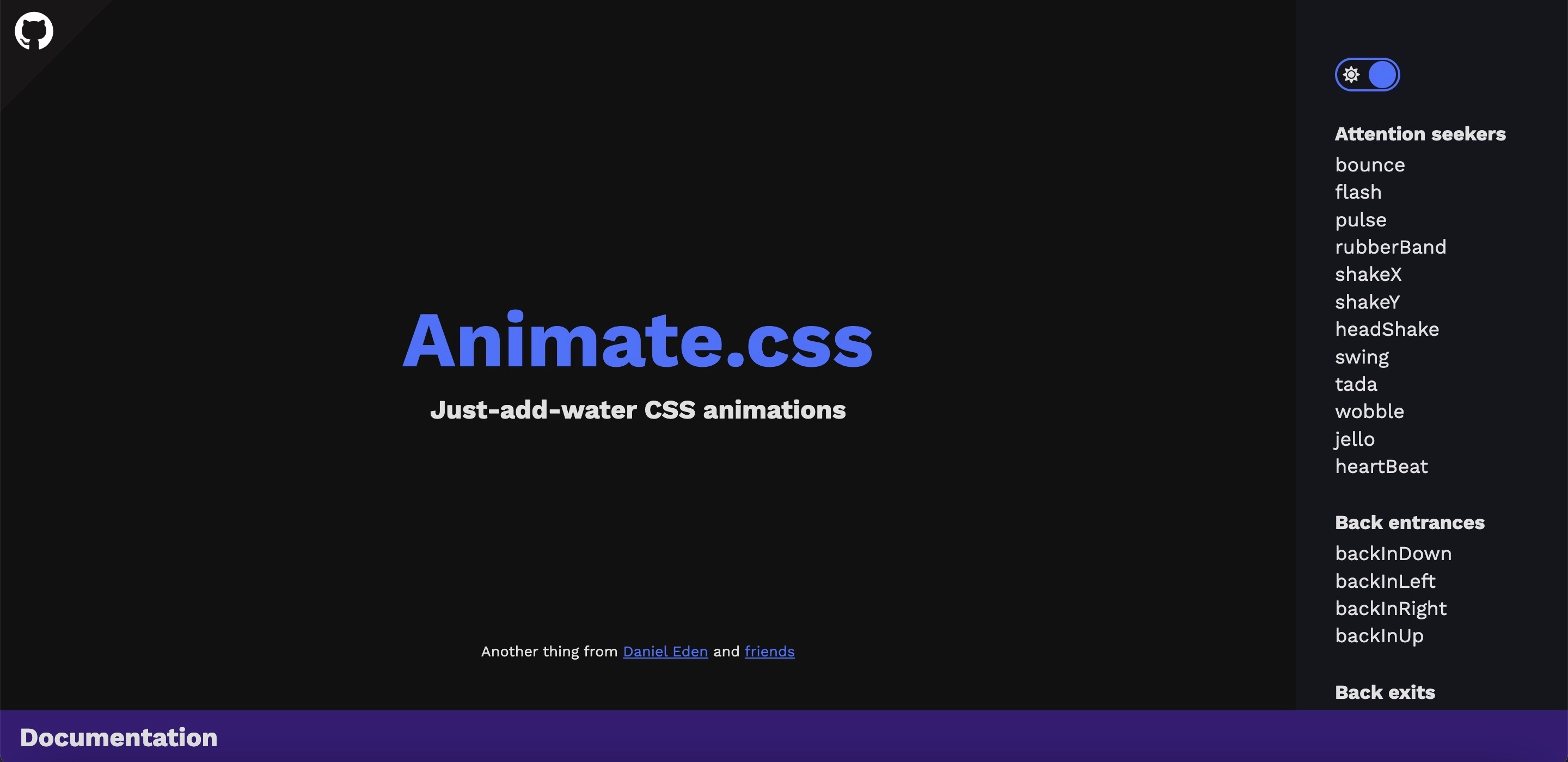
Animate.css is a popular CSS library that provides a wide range of pre-defined animations, making it easy to apply animations to any web project. With over 80.2k stars on GitHub and millions of npm downloads, Animate.css is a go-to choice for quick and simple animations.
Installation and Basic Usage
npm install animate.cssimport 'animate.css';<div class="animate__animated animate__bounce">An animated element</div>Best Use Case
Animate.css is best suited for simple animations that need to be implemented quickly without the need for JavaScript.
Pros
Easy to use, lightweight, large variety of animations.
Cons
Limited to CSS animations, less control over animation behavior.
2. React Spring
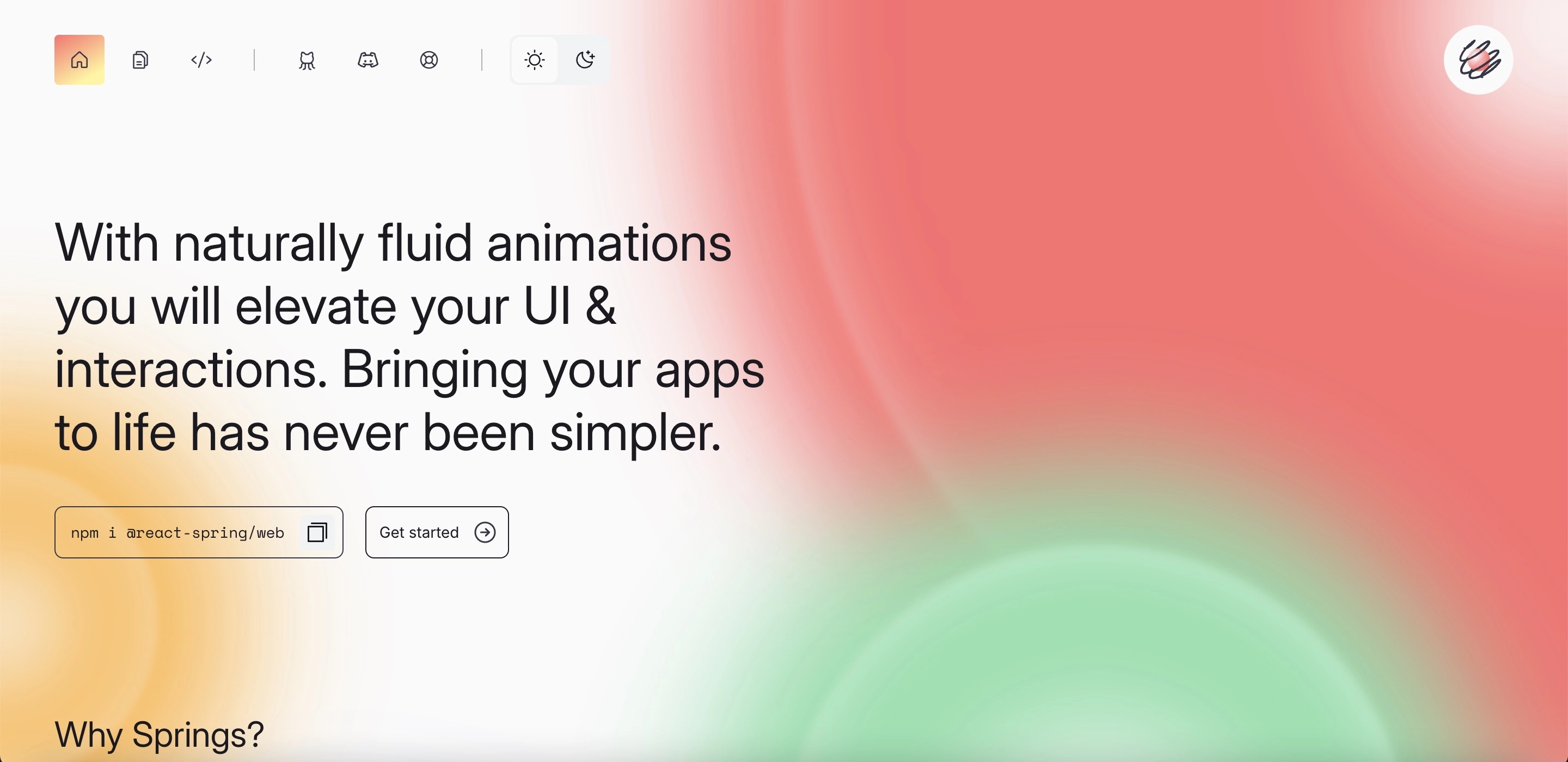
React Spring is a popular animation library for React, providing a powerful and flexible way to create animations based on spring physics. It has over 27.8k stars on GitHub and is widely used in the React community.
Installation and Basic Usage
npm install @react-spring/webimport React from 'react';
import { useSpring, animated } from '@react-spring/web';
const App = () => {
const springs = useSpring({
from: { x: 0 },
to: { x: 100 }
});
return (
<animated.div
style={{
width: 80,
height: 80,
background: '#ff6d6d',
borderRadius: 8
}}
/>
);
};
export default App;Best Use Case
Creating complex animations with fine-tuned control over transitions and interactions.
Pros
Highly flexible, supports advanced animations, good community support.
Cons
Learning curve can be steep for beginners.
3. Framer Motion
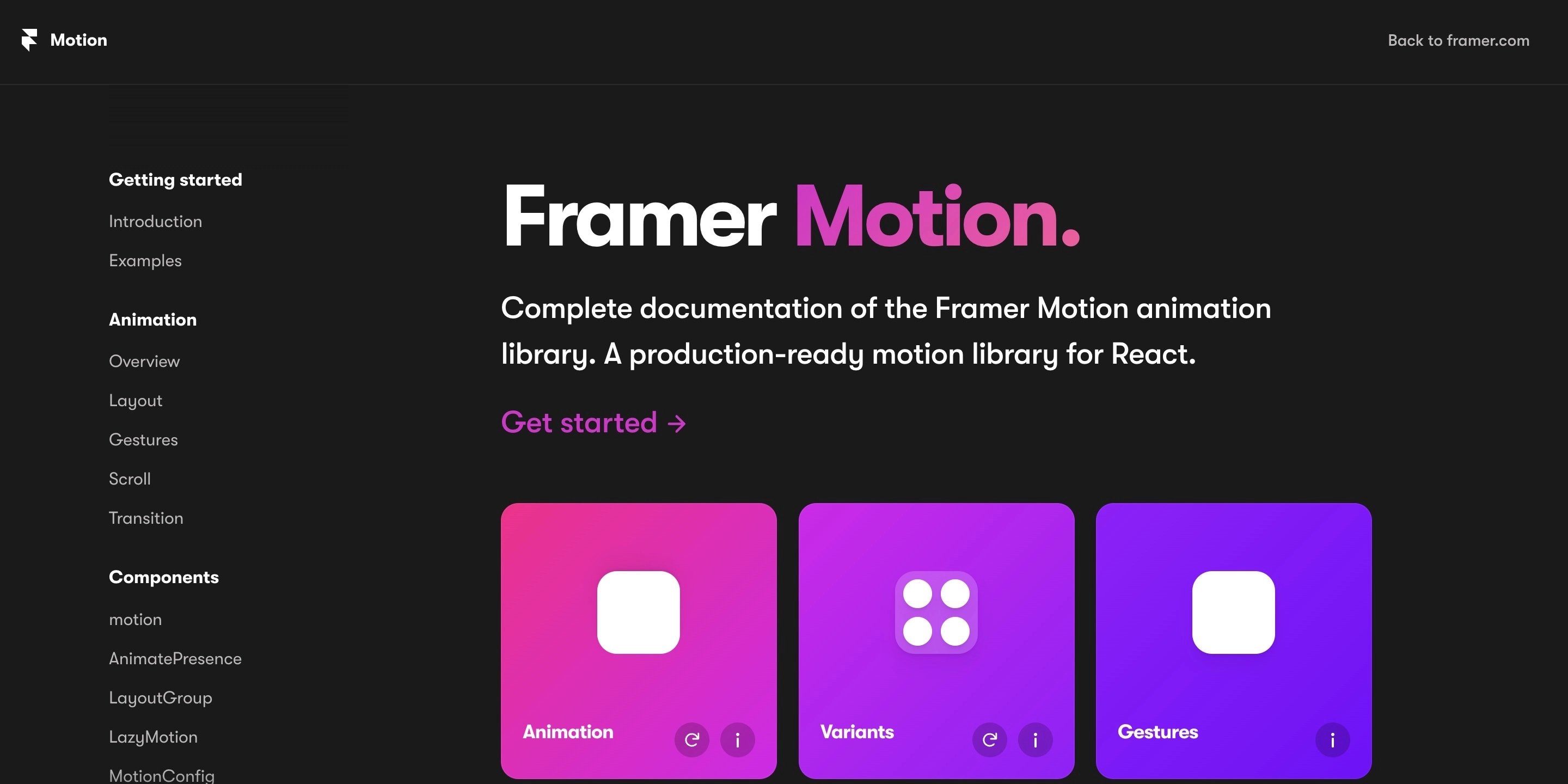
Framer Motion is a powerful animation library known for its ease of use and comprehensive features. It has over 22.8k stars on GitHub and is widely praised for its intuitive API.
Installation and Basic Usage
npm install framer-motionimport React from 'react';
import { motion } from 'framer-motion';
const App = () => {
return (
<motion.div initial={{ opacity: 0 }} animate={{ opacity: 1 }} transition={{ duration: 1 }}>
Hello, Framer Motion!
</motion.div>
);
};
export default App;Best Use Case
Creating smooth and visually appealing animations with minimal code.
Pros
Intuitive API, supports keyframe animations, great documentation.
Cons
Slightly larger bundle size compared to other libraries.
4. Anime.js
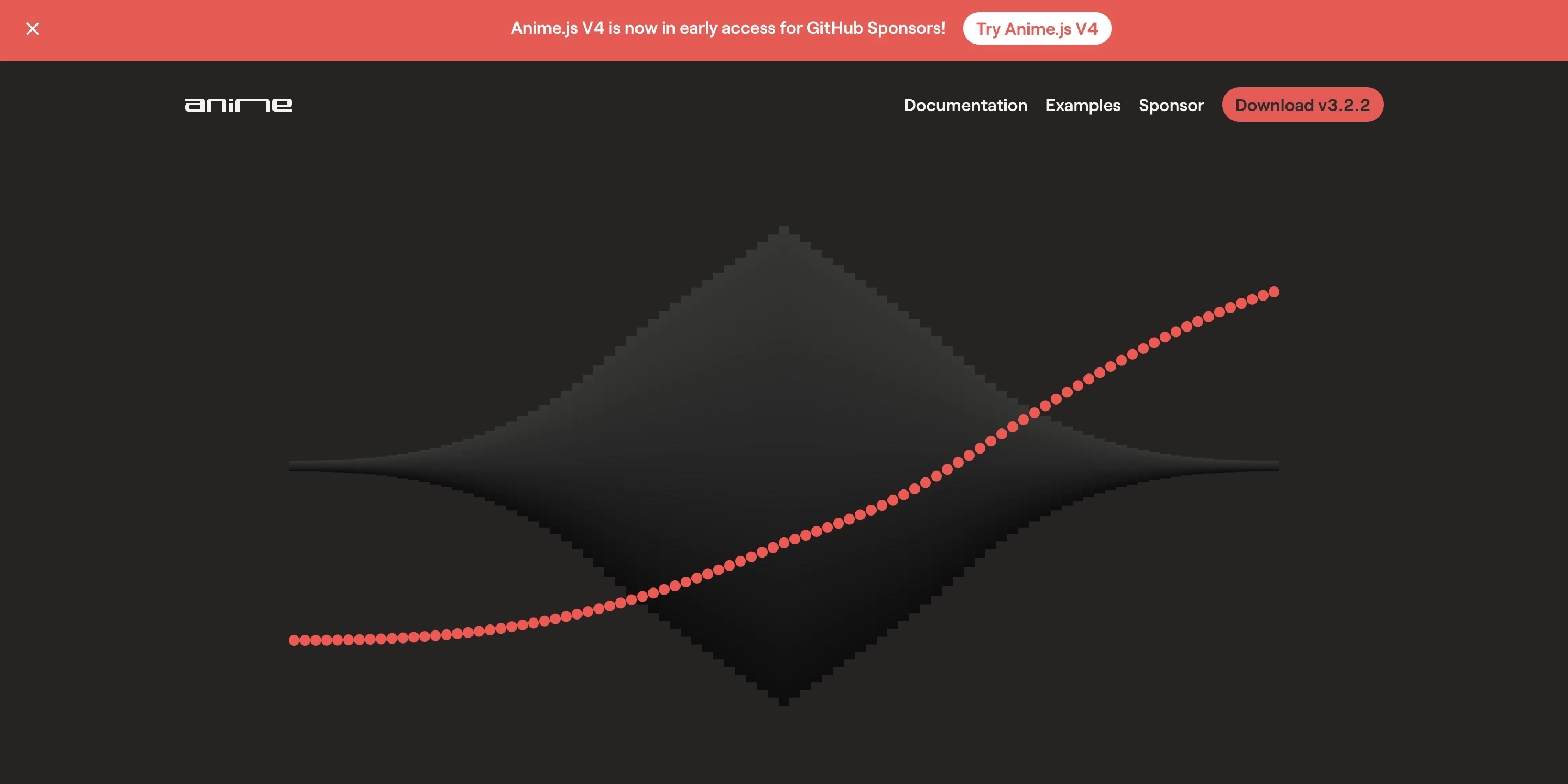
Anime.js is a lightweight JavaScript animation library with a powerful API. It has over 49.2k stars on GitHub and is widely used for creating complex and highly customizable animations.
Installation and Basic Usage
npm install animejsimport anime from 'animejs/lib/anime.es.js';
anime({
targets: 'div',
translateX: 250,
rotate: '1turn',
duration: 800
});Best Use Case
Creating intricate and detailed animations with precise control.
Pros
Lightweight, versatile, highly customizable.
Cons
Requires JavaScript knowledge, can be complex for simple animations.
5. GSAP (GreenSock Animation Platform)
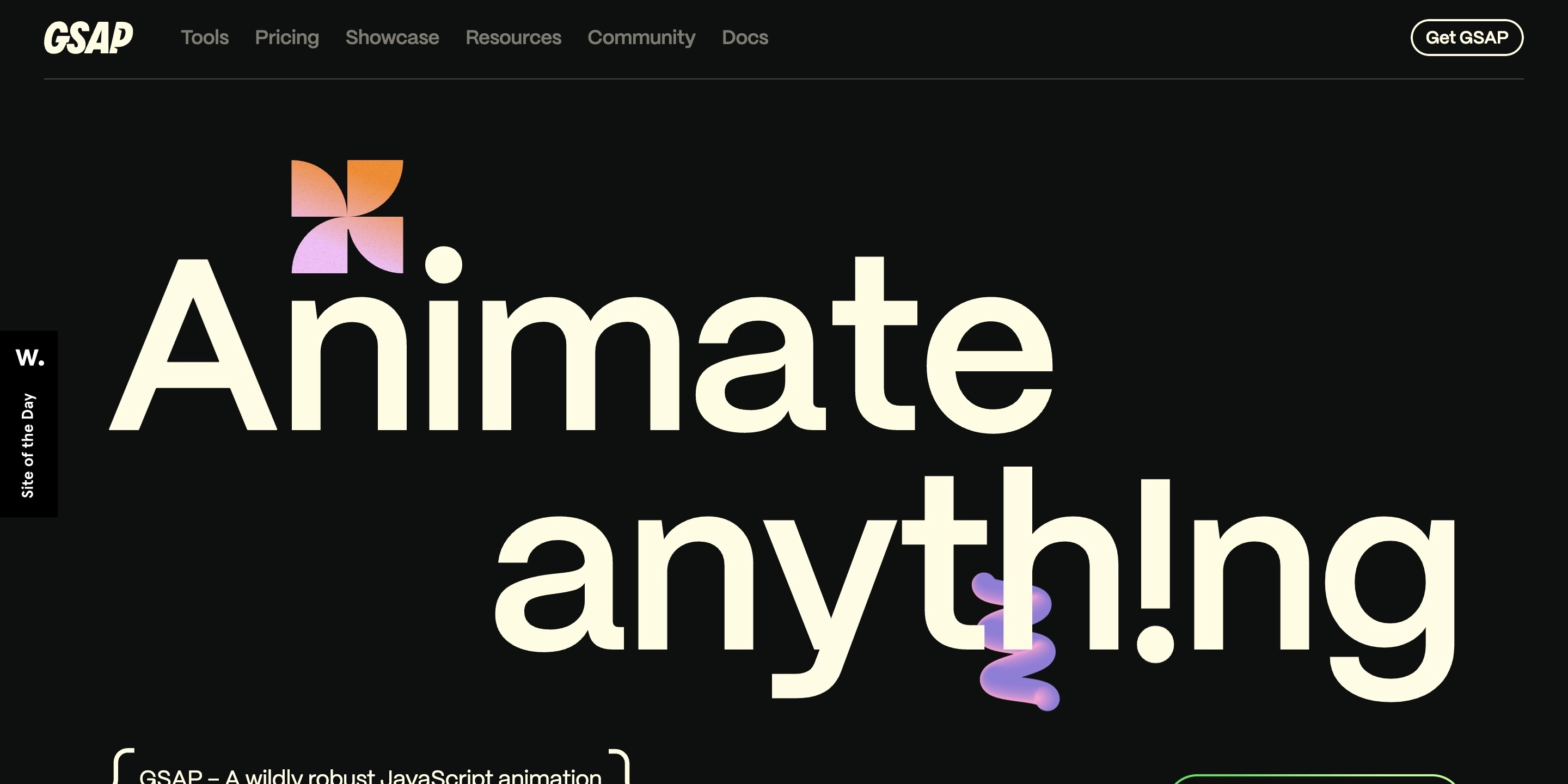
GSAP is a powerful JavaScript animation library known for its high performance and rich feature set. It has over 19.2k stars on GitHub and is widely used in both web and mobile applications.
Installation and Basic Usage
npm install gsapimport { gsap } from 'gsap';
gsap.to('.box', { rotation: 27, x: 100, duration: 1 });Best Use Case
High-performance animations and complex sequences.
Pros
Extremely powerful, robust, high performance.
Cons
Larger bundle size, requires learning time.
6. Popmotion
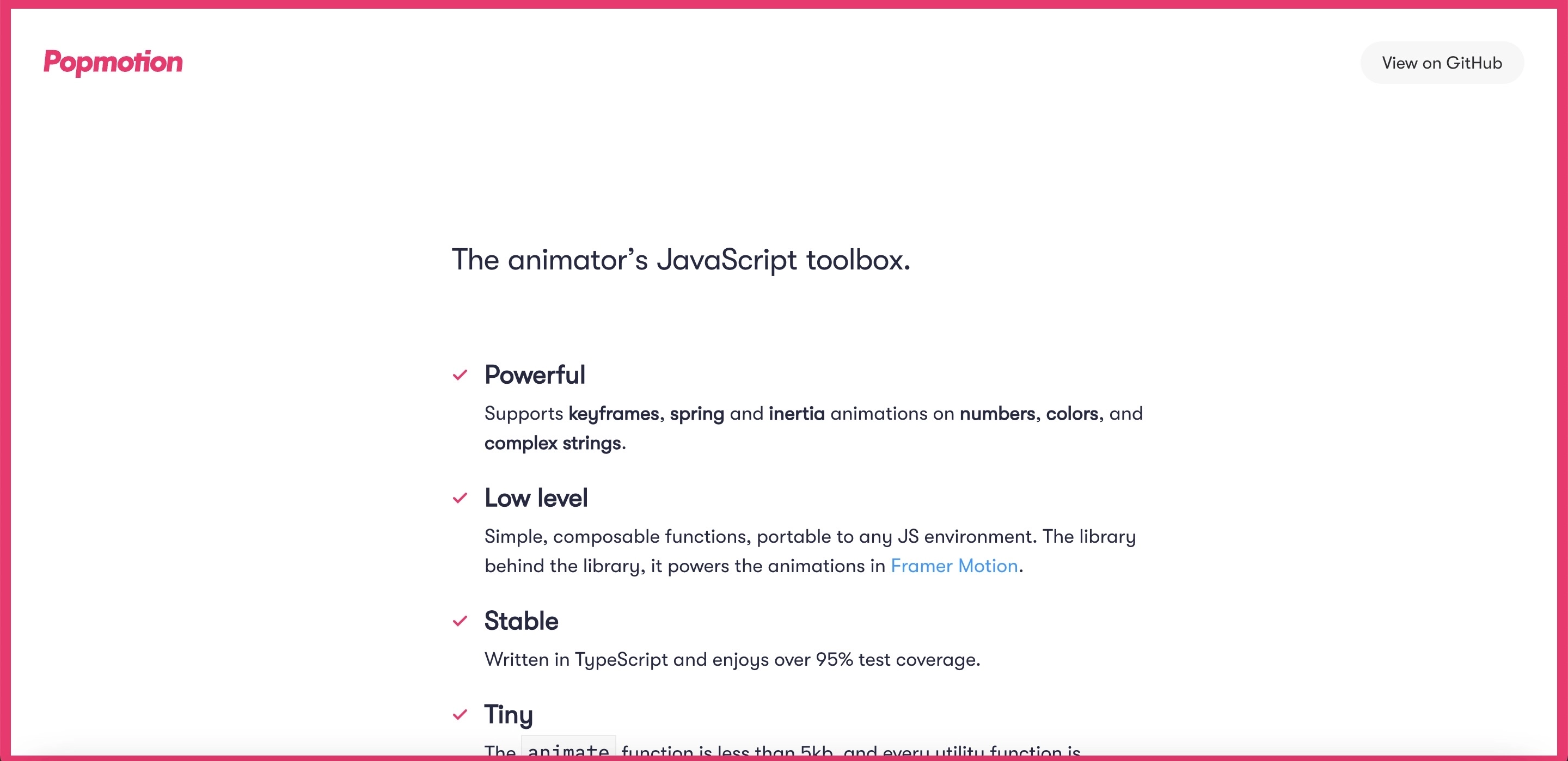
Popmotion is a functional, flexible JavaScript animation library. It powers the animations in Framer Motion. It has over 19.9k stars on GitHub and offers a range of tools for creating animations and interactions.
Installation and Basic Usage
npm install popmotionimport { animate } from 'popmotion';
animate({
from: 0,
to: 100,
onUpdate: (latest) => {
console.log(latest);
}
});Best Use Case
Creating low-level, complex interactions and highly customizable animations.
Pros
Functional API, flexible, scalable and tiny bundle.
Cons
Can be complex for simple use cases.
7. Mo.js
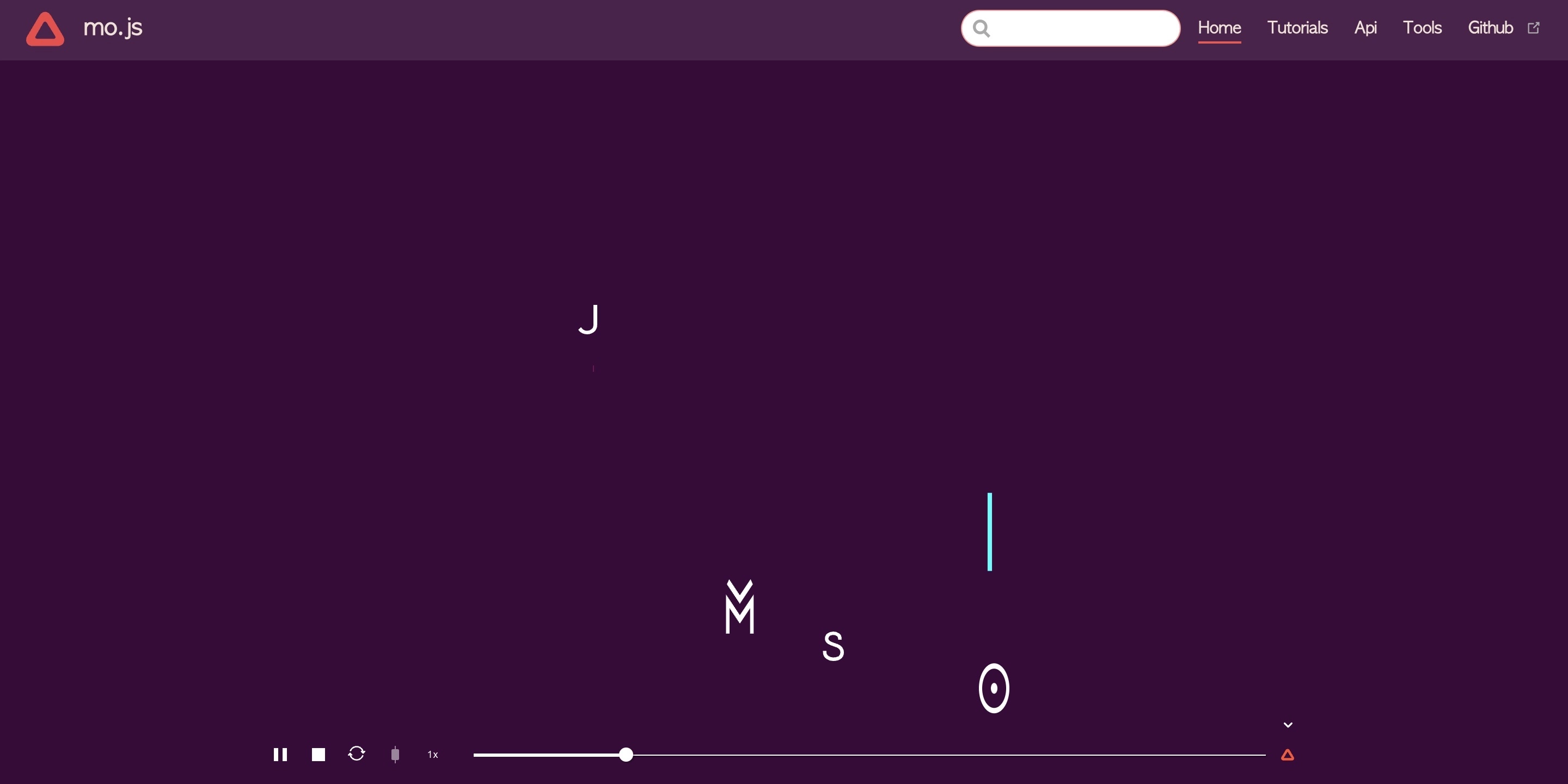
Mo.js is a motion graphics toolbelt for the web. It has over 18.3k stars on GitHub and offers a variety of tools for creating animations.
Installation and Basic Usage
npm install @mojs/coreimport { Mojs } from '@mojs/core';
const bouncyCircle = new mojs.Shape({
parent: '#bouncyCircle',
shape: 'circle',
fill: { '#F64040': '#FC46AD' },
radius: { 20: 80 },
duration: 2000,
isYoyo: true,
isShowStart: true,
easing: 'elastic.inout',
repeat: 1
});
bouncyCircle.play();Best Use Case
Creating complex motion graphics and animations.
Pros
Versatile, powerful, great for motion graphics.
Cons
Steeper learning curve, larger bundle size.
Animation Libraries for Specific Use cases
8. Remotion - Generate Animation Video with React
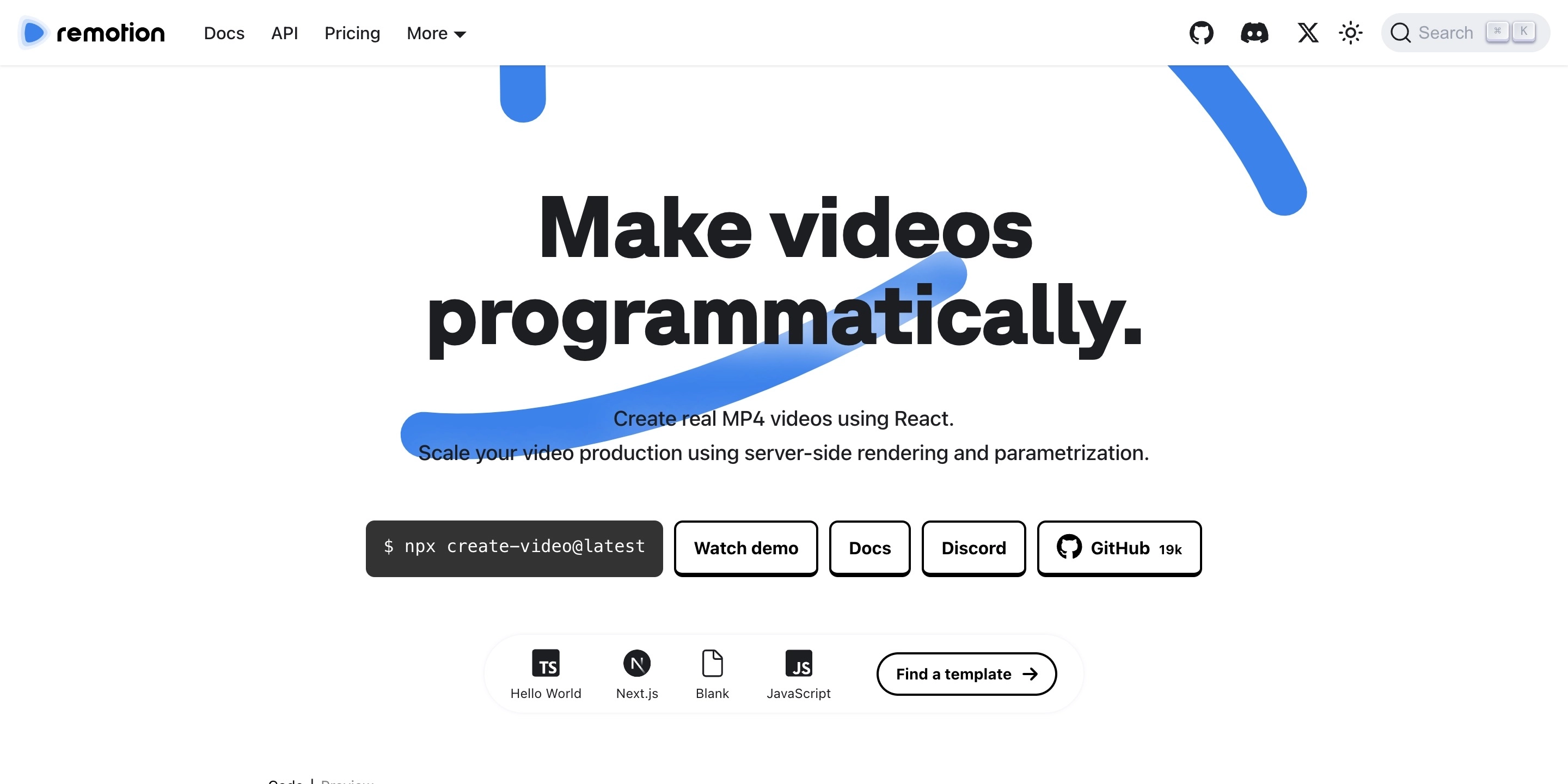
Remotion allows you to create videos programmatically using React. It’s a unique library with over 19.6k stars on GitHub, enabling developers to leverage React’s power for video content creation.
Installation and Basic Usage
# new project
npx create-video@latest
# install to existing project
npm i --save-exact [email protected] @remotion/[email protected]export const MyComposition = () => {
return null;
};import React from 'react';
import {Composition} from 'remotion';
import {MyComposition} from './Composition';
export const RemotionRoot: React.FC = () => {
return (
<>
<Composition
id="Empty"
component={MyComposition}
durationInFrames={60}
fps={30}
width={1280}
height={720}
/>
</>
);
};import { registerRoot } from 'remotion';
import { RemotionRoot } from './Root';
registerRoot(RemotionRoot);Best Use Case
Programmatically generating videos using React.
Pros
Unique functionality, leverages React skills, powerful video creation capabilities.
Cons
Niche use case, can be complex for beginners.
9. Vivus - SVG Drawing Animation
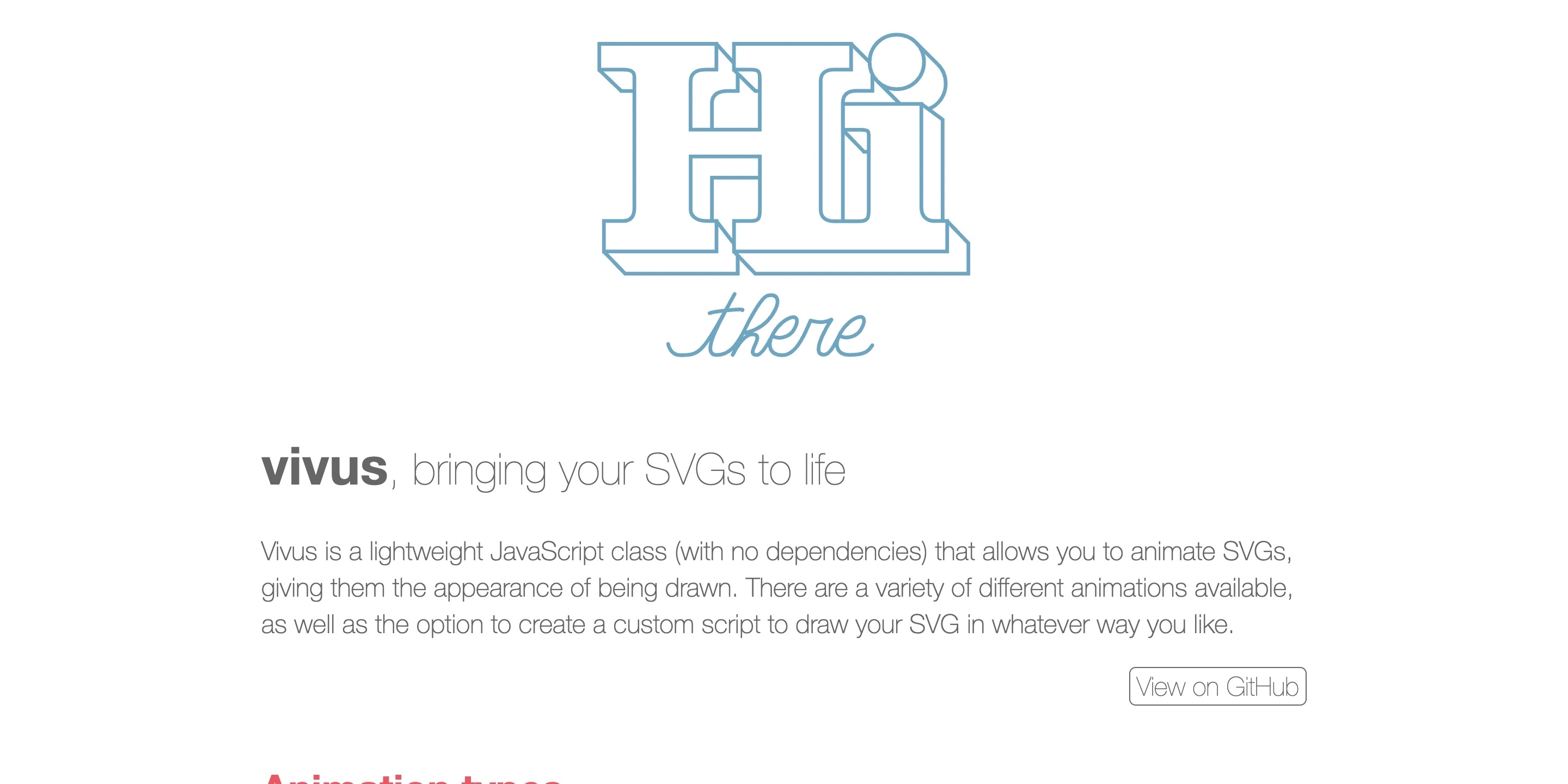
Vivus is a lightweight JavaScript library for animating SVGs. With over 15.1k stars on GitHub, it’s a great choice for creating SVG animations.
Installation and Basic Usage
npm install vivusimport Vivus from 'vivus';
new Vivus(
'my-svg',
{
type: 'delayed',
duration: 200,
animTimingFunction: Vivus.EASE
},
myCallback
);
// svg
<object id='my-svg' type='image/svg+xml' data='link/to/my.svg'></object>;Best Use Case
Creating drawing animations for SVGs.
Pros
Lightweight, specialized for SVGs, easy to use.
Cons
Limited to SVGs, not suitable for other types of animations.
10. Lottie for Web - Render After Effects Animations
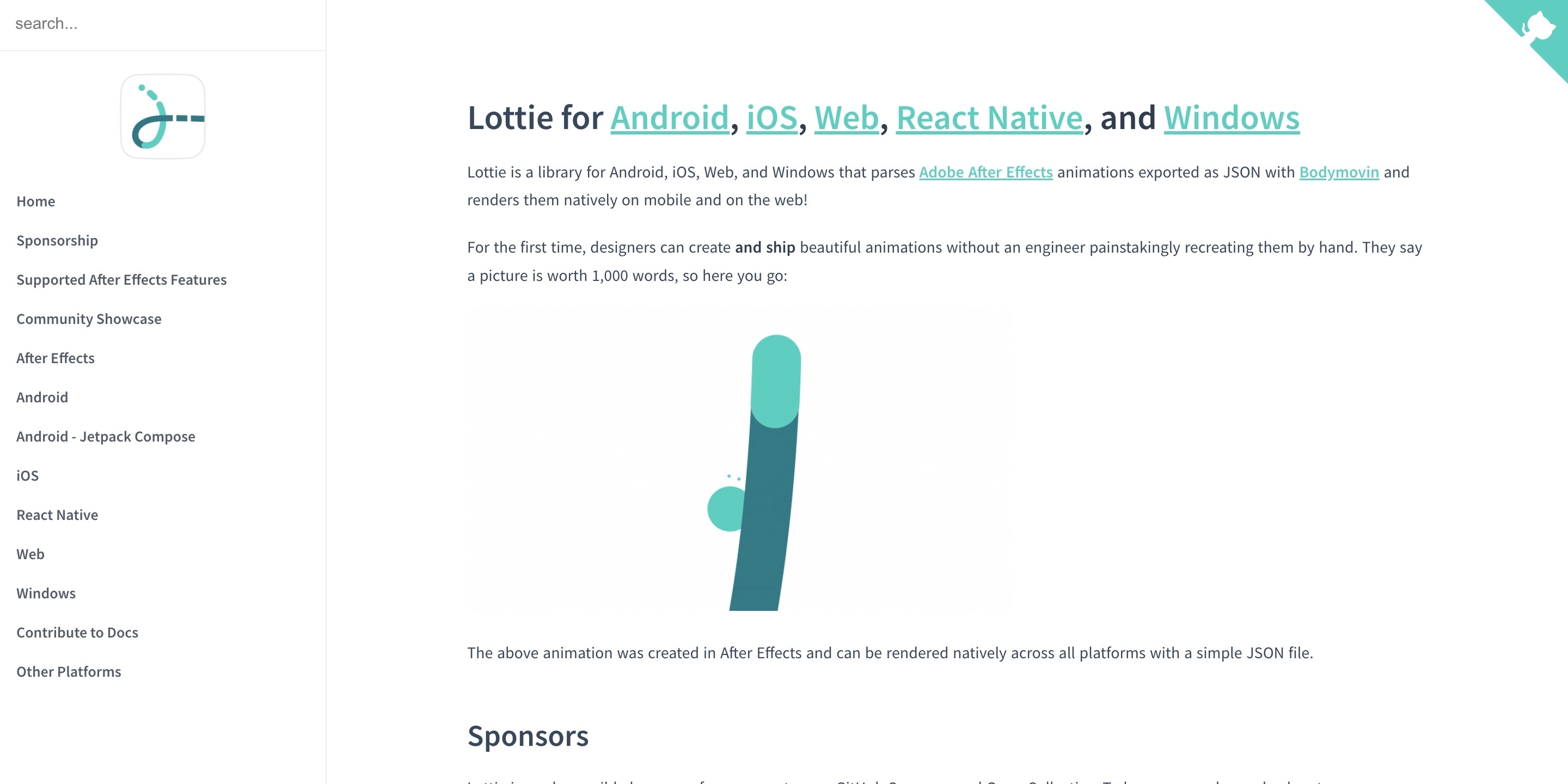
Lottie is a library for rendering animations created in Adobe After Effects. With over 29.9k stars on GitHub, it’s widely used for integrating complex animations.
Installation and Basic Usage
npm install lottie-webimport lottie from 'lottie-web';
import animationData from './animation.json';
lottie.loadAnimation({
container: document.getElementById('animation'),
renderer: 'svg',
loop: true,
autoplay: true,
animationData: animationData
});Best Use Case
Integrating animations created in After Effects.
Pros
High-quality animations, integrates well with After Effects.
Cons
Requires After Effects for animation creation, larger files.
11. ScrollReveal
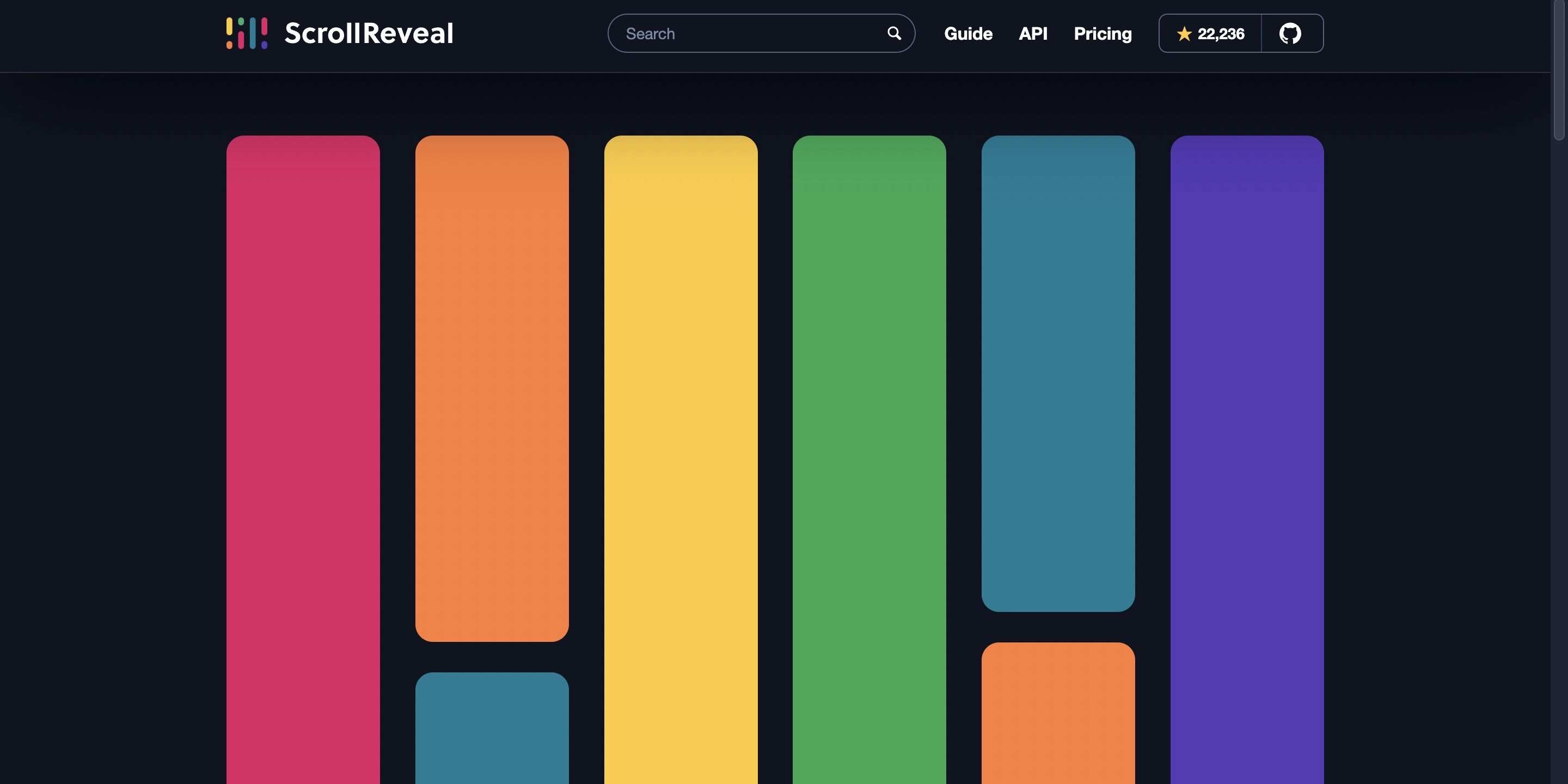
ScrollReveal is a JavaScript library for easily animating elements as they enter or leave the viewport. With over 22.2k stars on GitHub, it’s perfect for scroll-based animations.
Installation and Basic Usage
npm install scrollrevealimport ScrollReveal from 'scrollreveal';
ScrollReveal().reveal('.box', { delay: 500 });<h1 class="headline">Widget Inc.</h1>Best Use Case
Adding scroll-based reveal animations.
Pros
Easy to use, lightweight, great for scroll animations
Cons
Limited to scroll-based animations.
12. ScrollMagic
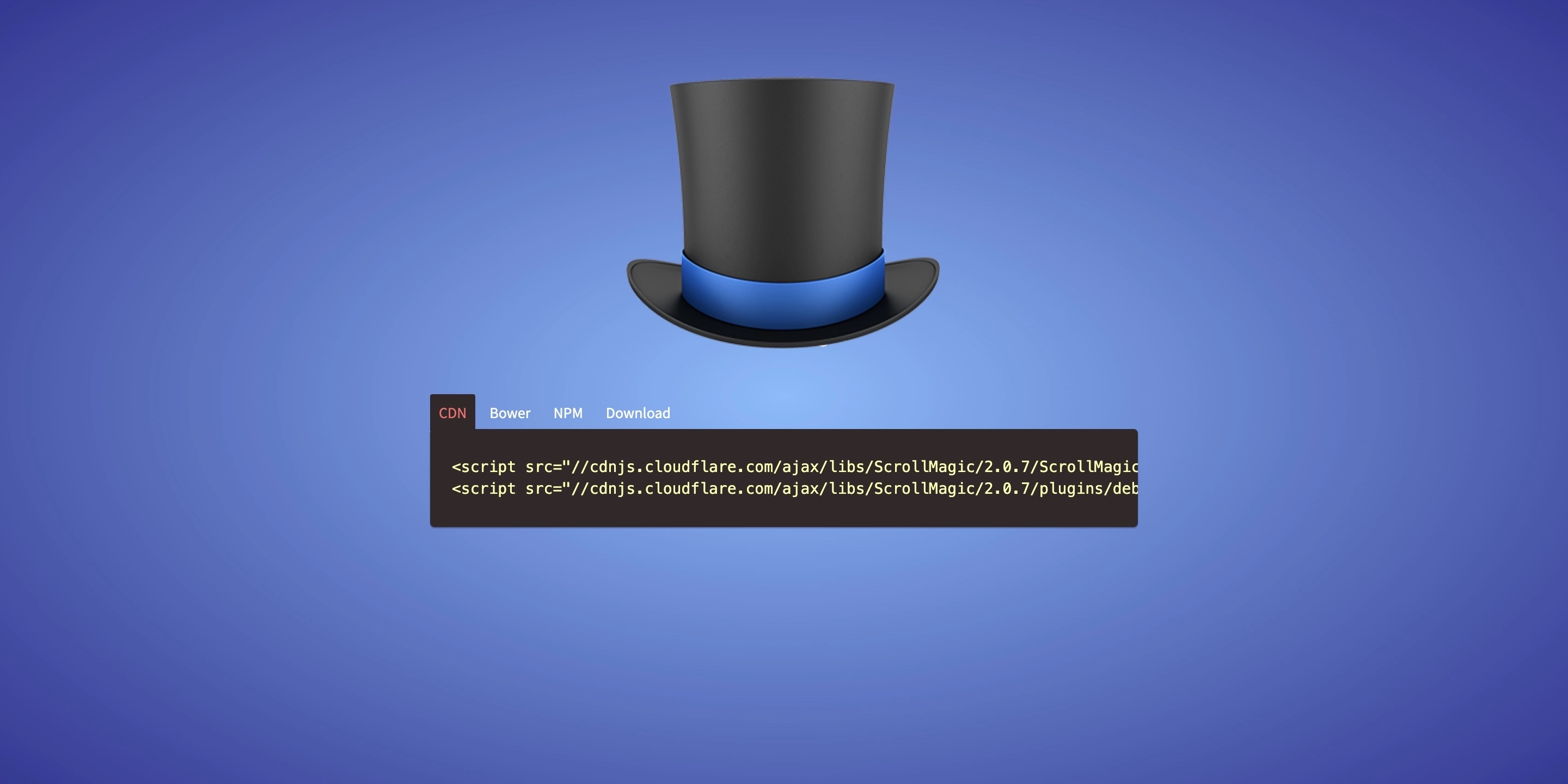
ScrollMagic is a library for creating scroll interactions and animations. With over 14.8k stars on GitHub, it offers a robust way to handle scroll-based animations.
Installation and Basic Usage
npm install scrollmagicimport ScrollMagic from 'scrollmagic';
const controller = new ScrollMagic.Controller();
var controller = new ScrollMagic.Controller();
// create a scene
new ScrollMagic.Scene({
duration: 100, // the scene should last for a scroll distance of 100px
offset: 50 // start this scene after scrolling for 50px
})
.setPin('#my-sticky-element') // pins the element for the the scene's duration
.addTo(controller); // assign the scene to the controllerBest Use Case
Creating complex scroll interactions and animations.
Pros
Powerful, flexible, integrates well with GSAP.
Cons
Can be complex for simple animations, larger bundle size.
13. Typed.js
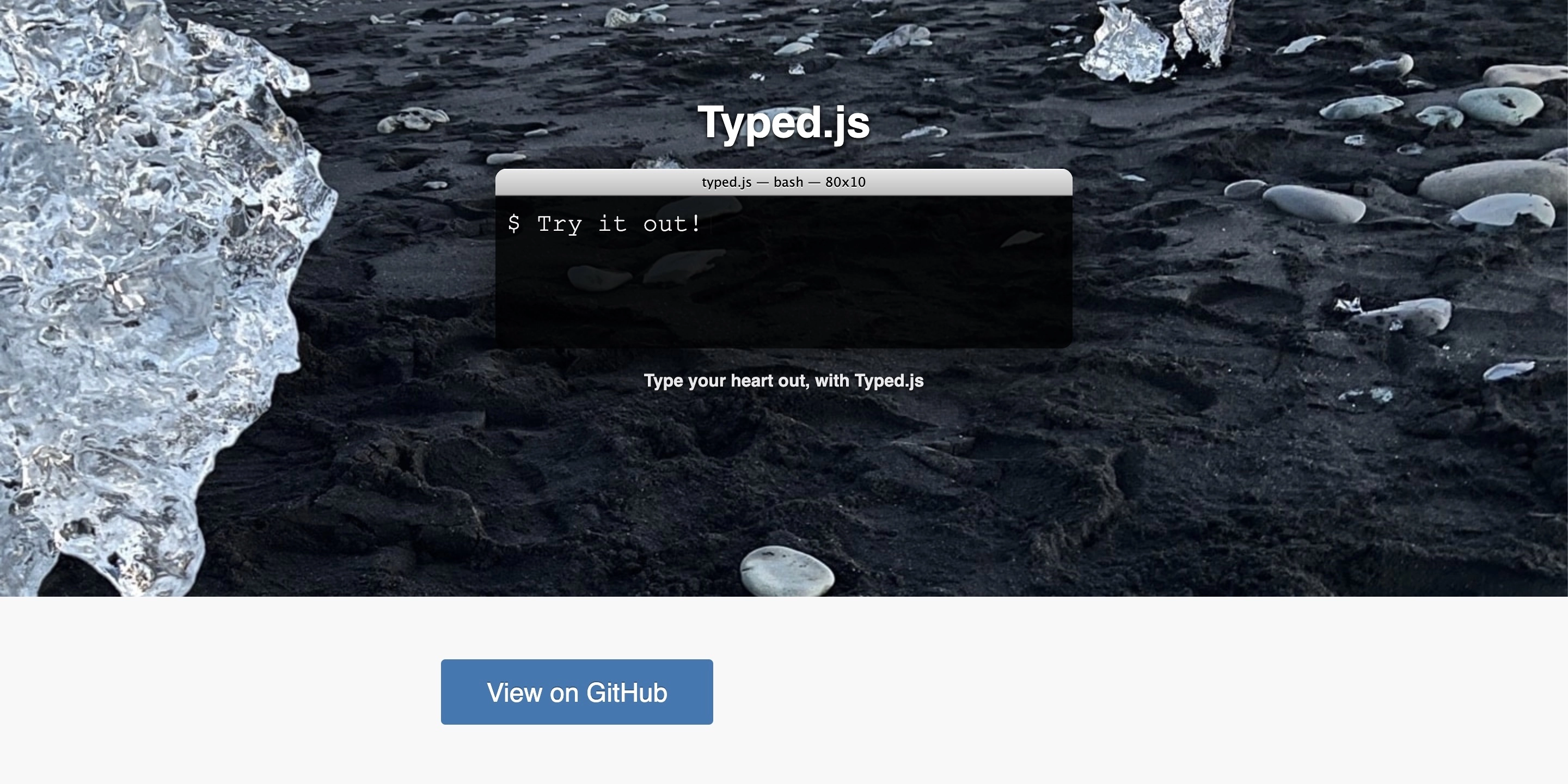
Typed.js is a JavaScript library that types out text, making it look like it’s being typed by a human. With over 15.1k stars on GitHub, it’s great for adding typing animations.
Installation and Basic Usage
npm install typed.jsimport Typed from 'typed.js';
const typed = new Typed('#element', {
strings: ['<i>First</i> sentence.', '& a second sentence.'],
typeSpeed: 50
});Best Use Case
Creating typing animations for text.
Pros
Easy to use, lightweight, great for typing effects.
Cons
Limited to typing animations, less flexibility.
Advanced Animation Libraries
14. Three.js - Advanced JavaScript 3D Library
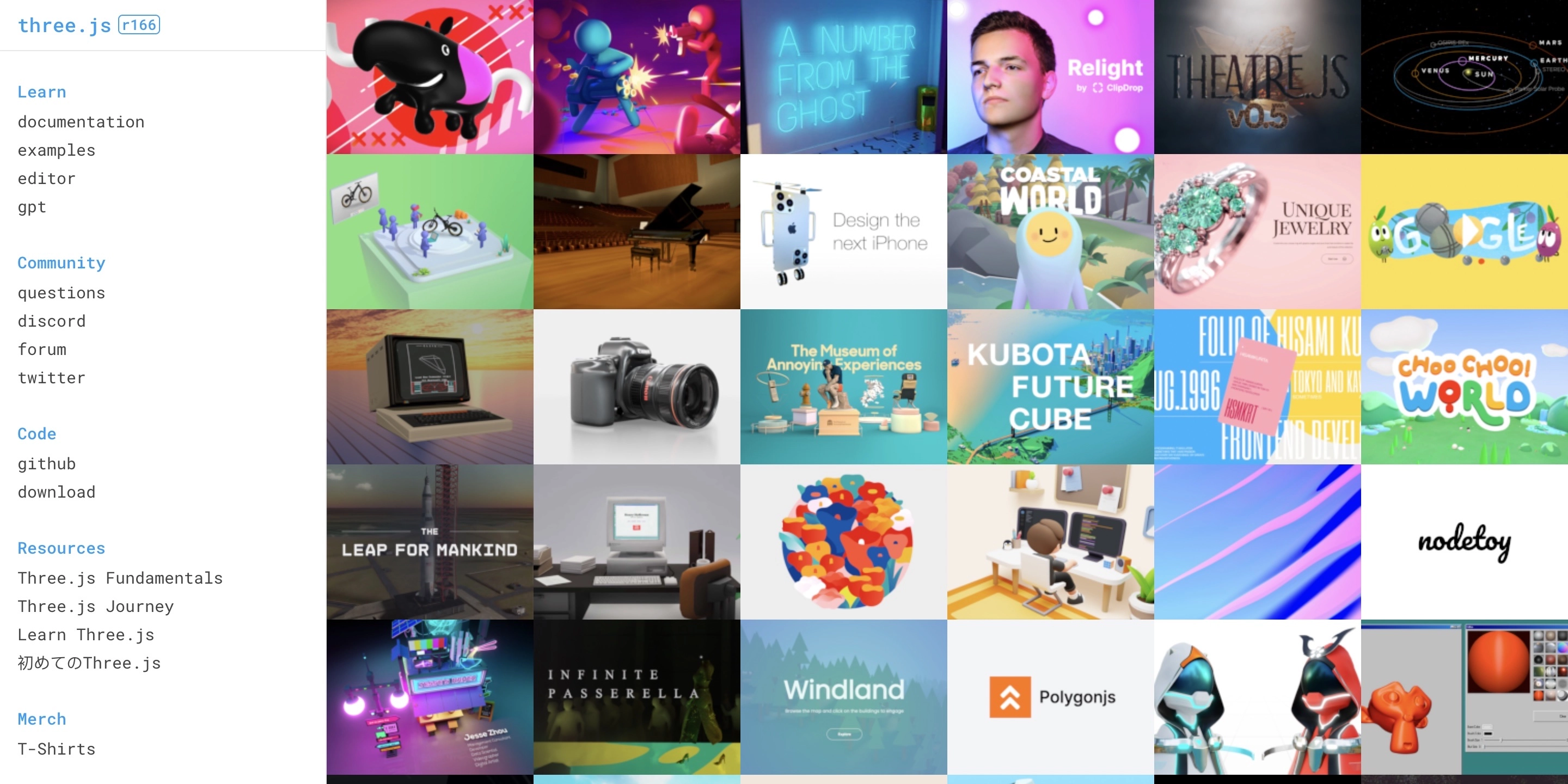
Three.js is a powerful 3D library for JavaScript, allowing you to create complex 3D animations and visualizations. With over 101k stars on GitHub, it’s widely used for 3D web applications.
Installation and Basic Usage
npm install threeimport * as THREE from 'three';
const scene = new THREE.Scene();
const camera = new THREE.PerspectiveCamera(75, window.innerWidth / window.innerHeight, 0.1, 1000);
const renderer = new THREE.WebGLRenderer();
renderer.setSize(window.innerWidth, window.innerHeight);
document.body.appendChild(renderer.domElement);Best Use Case
Creating advanced 3D animations and visualizations.
Pros
Extremely powerful, vast community, supports complex 3D scenes.
Cons
Steep learning curve, larger bundle size.
15. Theatre.js
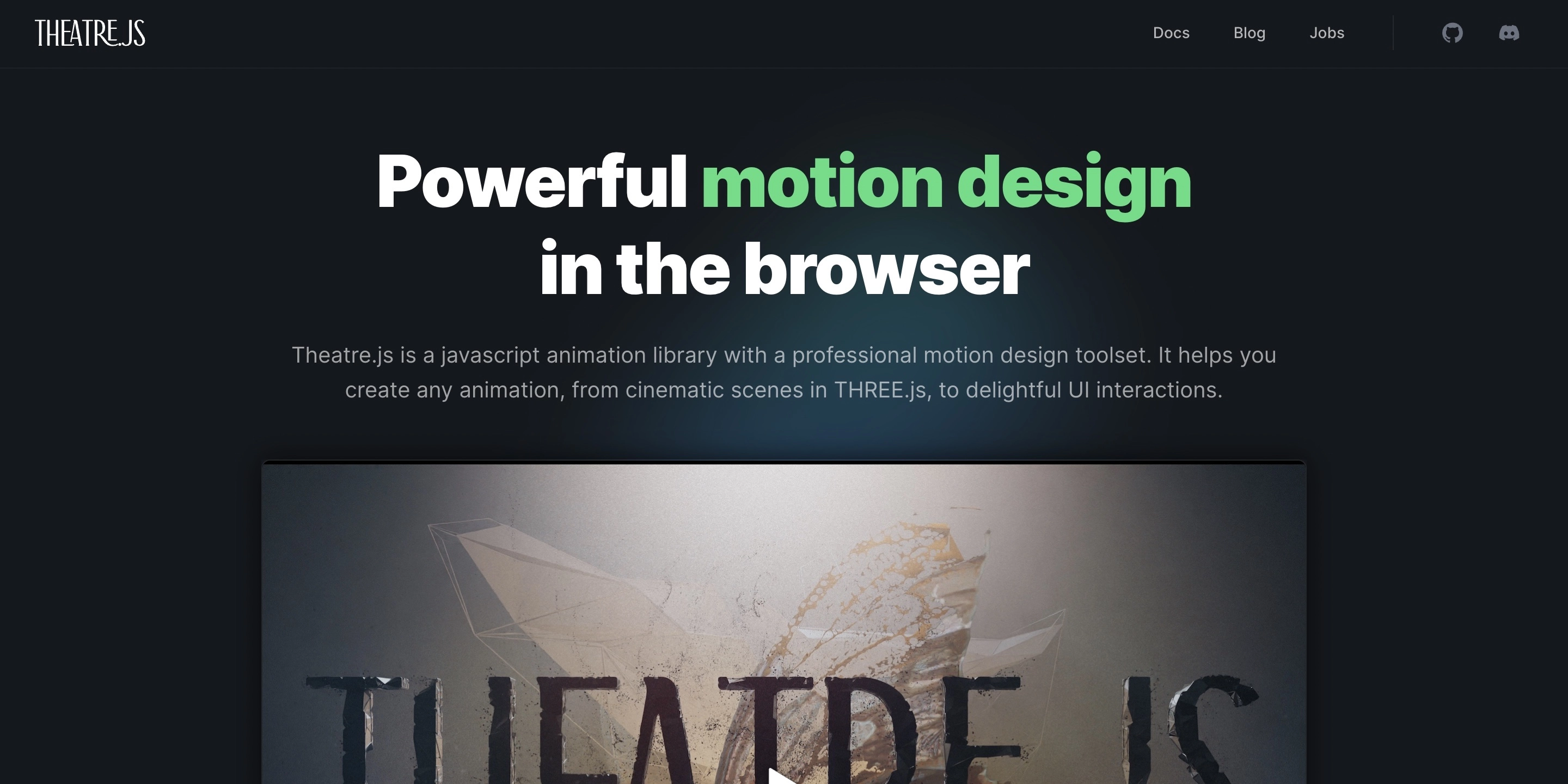
Theatre.js is an advanced animation library for creating and controlling animations programmatically. With over 11k stars on GitHub, it provides a timeline-based approach for animations.
Installation and Basic Usage
# r3f and its dependencies
npm install --save react three @react-three/fiber
# Theatre.js
npm install --save @theatre/[email protected] @theatre/[email protected] @theatre/[email protected]
# Three.js types (when using Typescript)
npm install --save-dev @types/threeimport * as THREE from 'three'
import { createRoot } from 'react-dom/client'
import React, { useRef, useState } from 'react'
import { Canvas, useFrame } from '@react-three/fiber'
import { getProject } from '@theatre/core'
// our Theatre.js project sheet, we'll use this later
const demoSheet = getProject('Demo Project').sheet('Demo Sheet')
const App = () => {
return (
<Canvas
camera={{
position: [5, 5, -5],
fov: 75,
}}
>
<ambientLight />
<pointLight position={[10, 10, 10]} />
<mesh>
<boxGeometry args={[1, 1, 1]} />
<meshStandardMaterial color="orange" />
</mesh>
</Canvas>
)
}
createRoot(document.getElementById('root')!).render(<App />)Best Use Case
Creating timeline-based animations with fine control.
Pros
Powerful timeline controls, precise animation sequences.
Cons
Newer library, smaller community, complex for beginners.
Conclusion
Choosing the right animation library depends on your project’s needs and complexity. If you’re looking for simple, quick animations, CSS-based libraries like Animate.css are ideal. For more complex interactions and high-performance needs, consider powerful libraries like GSAP or Three.js.
Each library has its strengths, so evaluate them based on factors like ease of use, community support, and the specific features you require. You can start experimenting with these top animation libraries before implementing it to your project.
Do you have other libraries worth mentioning? dont hesitate to share them in the comment below!. If you found this post helpful, share it with your fellow developers and explore more tutorials on this website.
Thank you. Have a good day!

